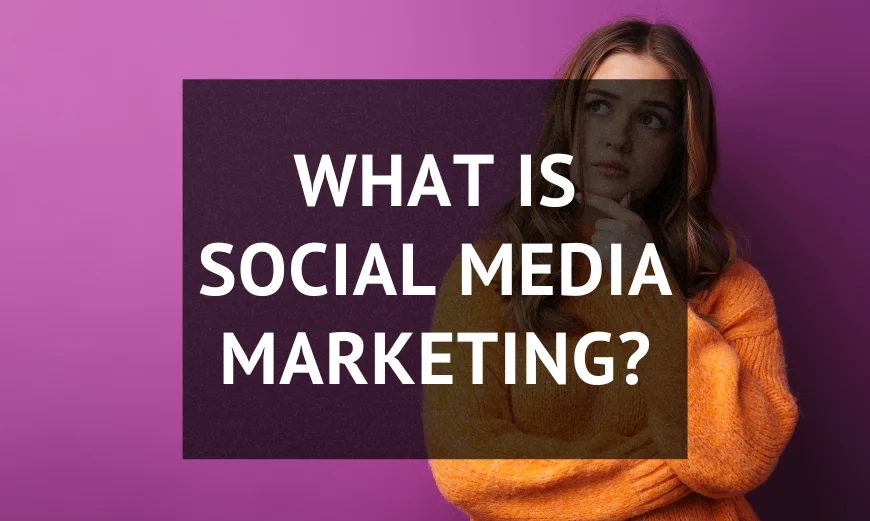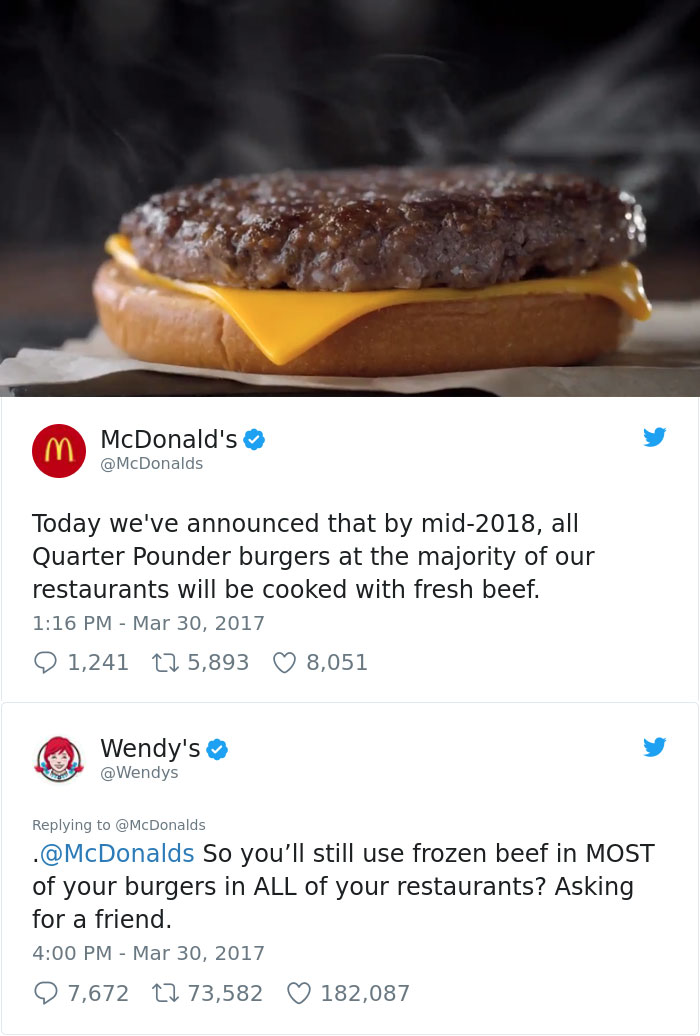In the vast expanse of the digital universe, social media platforms have emerged as powerful galaxies, each with its unique cluster of stars, planets, and inhabitants. From the casual tweets of Twitter to the captivating stories of Instagram and the professional networks of LinkedIn, these platforms have changed how we communicate and reshaped how businesses operate. This transformation raises a crucial question: “What is social media marketing?” Social media marketing, often abbreviated as SMM, strategically utilizes these platforms to promote a product, service, or brand.
Dive in as we unravel its significance, methodologies, and impact in the contemporary digital age.
What is Social Media Marketing?
Social media marketing (SMM) is the strategic approach of leveraging various social media channels to connect with audiences and promote products, services, or brands. Its multifaceted nature includes several elements:
- Content Creation and Postings: This entails designing posts, videos, infographics, and other content types that resonate with the target audience. The content not only promotes the brand but also provides value to followers.
- Engagement & Management: Additionally, this involves two-way communication with followers. From replying to comments to addressing queries and concerns, it’s all about building and nurturing a community around the brand.
- Analytics & Performance: A crucial aspect of SMM is monitoring performance. By analyzing metrics such as engagement rate, reach, and conversion, brands can refine their strategies for better outcomes.
- Advertisements: Running paid campaigns on platforms like Facebook or Instagram helps target specific audience segments, ensuring the brand message reaches those who matter most.
The journey of SMM has been transformative. SMM has come a long way from its initial days, when brands were still testing the waters, to now, where it is an indispensable part of a brand’s marketing arsenal. It’s evolved beyond mere presence on platforms to developing strategies that drive meaningful engagement and tangible results.
What is the Importance of Social Media Marketing?
In an era dominated by digital interactions, the significance of social media is unparalleled. For businesses, this translates to myriad opportunities:
- Unprecedented Reach: Platforms like Facebook, Instagram, and Twitter have amassed billions of users. For brands, this also means an opportunity to tap into a global audience, thereby breaking geographical constraints.
- Direct Engagement: Social media has bridged the gap between businesses and consumers. Brands can now interact directly with their audience, fostering trust, loyalty, and a deeper understanding of their needs and preferences.
- Driving Sales: With tools like shoppable posts, targeted advertisements, and influencer partnerships, brands can not only create awareness but also drive sales. The conversion path on social media has become shorter and more intuitive, leading to increased ROI for businesses.
Harnessing the power of social media marketing, businesses can now engage, enlighten, and entertain their audiences while achieving their commercial objectives.
Top 5 Examples of Social Media Marketing
Social media platforms are rich with examples of stellar campaigns that left an indelible mark. Here’s a dive into some noteworthy instances:
1. Nike’s “Just Do It” Campaign on Instagram:
By leveraging the influence of celebrities and renowned athletes, Nike’s campaign, in turn, became the epitome of how to harness the power of social media effectively. With their compelling visuals and, in addition, motivational messages, the brand’s ethos was loud and clear, resonating with millions worldwide.
2. Dove’s “Real Beauty Sketches” on YouTube:
https://youtu.be/XpaOjMXyJGk
As a part of Dove’s Real Beauty campaign, this heart-touching video showcased the stark contrast between how women viewed themselves and how others perceived them. Not only did it go viral, but it also attracted millions of views, effectively forwarding Dove’s message about self-esteem and natural beauty.
3. Wendy’s Top Roasting on Twitter:
On the other hand, Wendy’s is known for its playful and sometimes sassy tweets, which sets the brand apart in the fast-food industry. With their memorable roast sessions and witty comebacks, both to customers and competitors alike, they have managed to garner massive attention, thus making them a favorite on Twitter.
4. Starbucks’ “Red Cup Contest” on Instagram:
Every holiday season, Starbucks introduces its red cup and, with it, an Instagram contest where users submit their customized red cup designs. The result? Thousands of entries and massive user engagement, effectively promoting their holiday specials.
5. Spotify’s “Wrapped” Campaign:
At the end of each year, Spotify users eagerly await their personalized “Wrapped” stats, detailing their most listened-to songs, artists, and genres. Users eagerly share these on social media, becoming organic promoters and amplifying Spotify’s reach.
The Different Roles in Social Media Marketing
Social Media Marketing Specialist
A Social Media Marketing Specialist is the backbone of a brand’s online presence. Their primary tasks revolve around devising effective strategies tailored to specific platforms. Their expertise is rooted in understanding audience behaviors, current trends, and the technical intricacies of each platform. From selecting the right hashtags to determining the best time to post, they craft nuanced strategies that maximize reach and engagement. Additionally, they continuously analyze data to refine strategies, ensuring the brand maintains a positive and consistent image. Within a social media marketing agency, these specialists often work with content creators, designers, and analysts to bring their strategies to life.
Social Media Marketing Consultant
A Social Media Marketing Consultant is a seasoned guide in the vast social media landscape. Typically equipped with years of experience and a vast portfolio, they offer brands crucial insights, innovative strategies, and troubleshooting advice. While some work freelance, offering their expertise to diverse clients, others might be associated with consulting firms or even more prominent social media marketing agencies. They delve deep into a brand’s current strategies, pinpointing strengths and areas of improvement, and often provide a fresh, outsider’s perspective that can lead to game-changing strategies.
Social Media Marketer
The Social Media Marketer is on the frontline, as they execute the strategies laid out by specialists and consultants. Their day-to-day activities involve content creation, curation, and active management of published content across various platforms. Creativity, adaptability, and a keen sense of the brand’s voice are demanded in this role. From drafting catchy tweets to creating compelling Instagram stories, content maestros are the ones who ensure that the brand’s message is communicated effectively and engagingly. In a social media marketing agency setting, they frequently collaborate closely with graphic designers, video editors, and copywriters to produce high-quality content.
Social Media Marketing Manager
The ship’s captain, the Social Media Marketing Manager, is pivotal in steering the brand’s social media efforts towards its goals. They oversee the social media team, ensuring coordination, consistency, and campaign effectiveness. In addition, their responsibilities encompass setting clear objectives, monitoring key performance metrics, and ensuring these goals are met and exceeded. They act as a bridge and often coordinate with departments like sales, PR, and customer service, ensuring a cohesive brand image across all touchpoints. This role within a social media marketing agency is crucial because it involves client communication, understanding client needs, and ensuring the agency’s efforts align with client objectives.
Social Media Marketing Agency
A Social Media Marketing Agency is a one-stop solution for all social media needs. Comprising a team of specialists, consultants, marketers, managers, content creators, and analysts, these agencies offer end-to-end services. They cover social media marketing from strategy formulation and content creation to analytics and paid advertising. Brands, especially those lacking in-house expertise, often collaborate with these agencies for more comprehensive, expert-driven strategies. The added benefit is the holistic view and diverse experience these agencies bring to the table, having worked across various industries and sectors.
What is Paid vs. Organic Social Media Marketing?
In social media, there are two primary approaches for businesses to connect with their audience and bolster their digital presence. These approaches are paid and organic. On the other hand, each has unique strategies, benefits, and challenges. Now, let’s delve deeper into understanding these two facets.
Paid Social Media Marketing (SMM):
Paid SMM involves investing money to display advertisements or sponsored content on various social media platforms. It’s akin to buying a billboard in the digital sphere.
Features:
- Targeted Advertising: Platforms offer intricate targeting options, allowing businesses to reach specific audiences based on age, interests, behaviors, geographical locations, and even past interactions with the brand.
- Budget-Friendly: Even with a minimal budget, businesses can run ads and achieve measurable results. You can set daily or campaign-specific budgets to control costs.
- Immediate Impact: When an ad goes live, it generates impressions and can lead to immediate clicks, website visits, or conversions.
- Performance Analysis: Modern platforms offer robust analytics. Businesses can see real-time results and adjust their campaigns accordingly for optimal performance.
Organic Social Media Marketing:
Organic SMM is a grassroots approach. It involves naturally building a loyal community of followers and engaging them with valuable content without paying for visibility.
Features:
- Long-Term Relationship Building: Organic efforts lay the foundation for genuine and lasting relationships with followers. When users voluntarily connect with a brand, it’s often due to genuine interest or existing loyalty.
- Cost-Effective: No direct costs are associated with posting content organically. However, there might be indirect costs, like time spent on content creation or hiring personnel to manage the channels.
- Sustainability: Unlike paid campaigns that stop once the budget is exhausted, organic strategies can provide enduring visibility and engagement.
- Enhances Credibility: Brands that invest in organic SMM often appear more genuine. Users typically understand the distinction between organic content and ads, often perceiving organic content as less “salesy” and more trustworthy.
In conclusion, while paid SMM provides immediate visibility and targeted reach, organic SMM builds trust and long-term relationships. The most effective social media strategies often incorporate a balanced blend of both approaches, capitalizing on the strengths of each.
What are some of the Advantages and Disadvantages of Social Media Marketing
The evolving digital landscape has made social media marketing a pivotal business tool. However, like every strategy, it comes with advantages and disadvantages.
Pros:
- Extended Reach: With billions of active users, social media platforms offer brands an unparalleled reach. Businesses can target specific demographics, from local audiences to global consumers, ensuring their message gets to the right people, no matter where they are located.
- Cost-Effective: One of the most appealing aspects of social media marketing is its cost-effectiveness. While paid campaigns have their place, organic strategies can drive impressive results without a hefty price tag. A well-crafted post, a viral hashtag, or an engaging video can lead to exponential brand exposure at a fraction of the cost of traditional advertising methods.
- Engagement: Unlike many other marketing strategies, social media offers a two-way communication channel. Businesses can broadcast their message, listen, and converse with their customers. This direct communication fosters a more profound connection, builds trust, and can lead to increased brand loyalty.
Cons:
- Time-Consuming: Effective social media marketing isn’t a set-it-and-forget-it strategy. It demands regular content updates, prompt responses to comments and queries, and continuous monitoring and tweaking of strategies based on analytics. This can become time-consuming for many businesses, especially smaller ones, without a dedicated team.
- Negative Feedback: The public nature of social media platforms can be a double-edged sword. While it offers transparency and direct communication, it also means that negative feedback or criticism is out there for all to see. A single dissatisfied customer or a minor slip-up can escalate quickly, potentially harming the brand’s image. It necessitates brands to be always on their toes, managing and addressing criticism promptly and professionally.
- Constant Evolution: Given the dynamic nature of social media platforms, brands must stay updated to remain relevant. This is due to the ever-changing algorithms and trends that these platforms exhibit. What works today, however, might not be effective tomorrow. However, this constant need for adaptation can be challenging for many businesses.
In summary, while social media marketing presents incredible opportunities for brands to connect and grow, it also demands a strategic approach, adaptability, and a willingness to invest time and effort.
What is the Scope of Social Media Marketing?
The vast and dynamic landscape of social media marketing (SMM) offers myriad avenues for brands to connect with their audience, bolster brand recognition, and drive business growth. As the digital world continues to evolve, so does the scope of SMM. Let’s delve deeper into what a comprehensive SMM strategy entails.
Content Creation:
- Diverse Content Types: This includes crafting blog posts, videos, infographics, memes, GIFs, stories, podcasts, and live sessions. The nature of content varies based on platform specifications and audience preferences.
- Quality Over Quantity: It’s essential to create high-quality content that resonates with the audience, offering them value and insight rather than just bombarding them with frequent, less meaningful posts.
Regular Posting:
- Consistency is Key: By keeping a consistent posting schedule, you can effectively maintain audience engagement and ensure that your brand remains top-of-mind for your followers.
- Platform-Specific Strategy: Additionally, each social media platform has its unique nuances. You can significantly enhance your reach and engagement by tailoring content and implementing specific posting strategies for each platform.
Engagement:
- Active Interaction: This involves responding to comments, messages, mentions, and reviews. Active interaction nurtures relationships and encourages two-way conversation.
- Community Building: By hosting Q&A sessions, webinars, or contests, you can effectively build a robust and engaged community around your brand.
Analysis:
- Performance Metrics: Monitoring metrics such as engagement rates, conversion rates, and ROI helps in understanding what’s working and what’s not.
- Feedback Loop: Using insights from analytics tools can guide content strategies, posting schedules, and ad spending, ensuring continuous improvement.
Ad Campaigns:
- Targeted Advertising: With paid ad campaigns, brands can reach specific demographics, ensuring their content reaches its intended audience.
- Budget Management: To achieve effective SMM, optimizing ad spending and ensuring the best results for the budget is essential. This includes A/B testing ads, refining target audiences, and adjusting campaigns based on performance.
- Multimedia Ads: Incorporating videos, slideshows, and carousel ads can enhance engagement and click-through rates.
Alignment with Brand Vision:
- Unified Messaging: All social media efforts, whether a tweet, a story, or an ad, should align with the brand’s overall message, ethos, and goals.
- Visual Cohesiveness: Maintaining a consistent visual aesthetic across posts and platforms strengthens brand recognition.
- Voice and Tone: Every post, reply, or comment should echo the brand’s voice, whether professional, quirky, or casual.
In conclusion, it is essential to note that SMM’s scope is extensive and multifaceted. It’s not just about posting content; it’s about building a cohesive brand narrative, fostering relationships, and driving tangible results in line with business objectives. As brands navigate this dynamic landscape, they must be agile, adaptive, and, most importantly, always audience-centric in their approach.
Conclusion
So, what is social media marketing all about? It’s how brands use online platforms to talk to people, share stories, and build communities. Some brands pay to get their message out quickly, while others naturally grow their followers over time. Both ways have their perks. The key is to find a balance: create accurate, relatable content, chat with followers, and sometimes use ads to reach even more people. Ultimately, it’s all about making genuine connections and being true to what your brand stands for. As the digital world changes, brands must stay real and listen to their audience. That’s the heart of good social media marketing.
Are you a business trying to boost your social media presence? Fortunately, at WOWbix, we specialize in crafting tailored social media marketing strategies that align with your brand’s vision. Let’s collaborate if you want to elevate your online presence and drive meaningful results. Dive into the digital landscape confidently with WOWbix by your side.”







